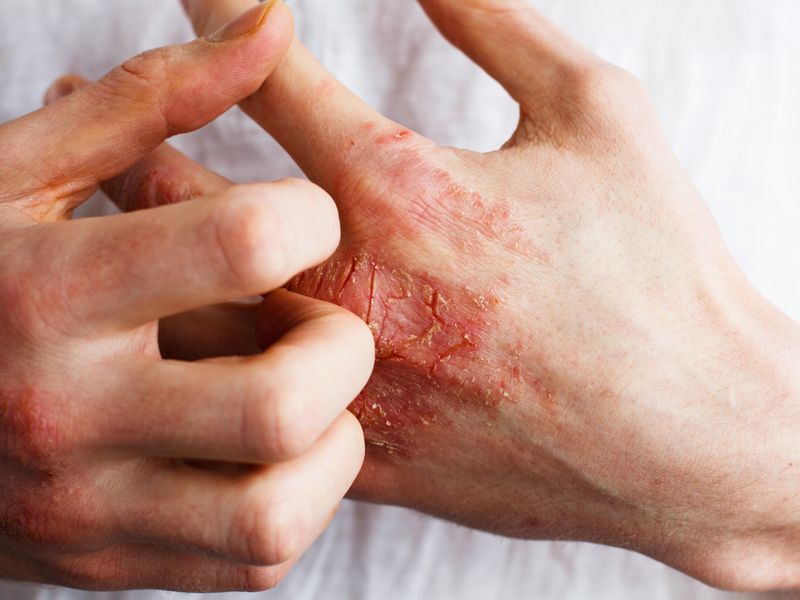TUESDAY, July 26, 2022 (HealthDay News) — Elimination diets may be associated with modest improvement in eczema severity but with some potential risks, according to a review published online July 18 in the Journal of Allergy and Clinical Immunology: In Practice.
Paul Oykhman, M.D., from McMaster University in Hamilton, Ontario, Canada, and colleagues conducted a systematic literature review to identify the benefits and harms of dietary elimination for the treatment of atopic dermatitis.
Based on 10 randomized controlled trials (599 participants), the researchers found that dietary elimination may slightly improve eczema severity (50 percent with versus 41 percent without dietary elimination improved SCORAD [SCOring Atopic Dermatitis] by a minimally important difference of 8.7 points), pruritus (daytime itch score mean difference [MD]: −0.21), and sleeplessness (sleeplessness score MD, −0.47) with low certainty evidence. Elimination strategy (empiric versus guided by testing) and food-specific sensitization were not associated with subgroup differences. There were insufficient data examining harms of elimination diets, but there was indirect evidence suggesting elimination diets may increase the risk for developing immunoglobulin E-mediated food allergy.
“My advice to anyone with atopic dermatitis-type eczema is that if you’re going to pursue this dietary option, make sure you keep using your usual medicated creams, moisturizers, and talk to your doctor first,” a coauthor said in a statement.
Several authors disclosed financial ties to the pharmaceutical industry.
Abstract/Full Text (subscription or payment may be required)
Copyright © 2022 HealthDay. All rights reserved.


